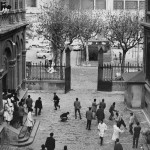
It is half a century now since May 1968 in France. In Catalonia, the unrest unleashed a frantic race to show who was the most left-wing, and could take over from the PCE-PSUC as the revolutionary party of the working class. The discourse of the counterculture, meanwhile, added a cultural and subjective dimension to the political struggle: the argument was that the revolution had to begin within each individual.
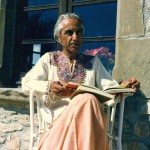
The Panikkar Year inaugurated on February 5th commemorates the hundredth anniversary of the birth of the philosopher, and has a double objective: to promote his work and debate on the validity of his thoughts on understanding the current world.

As an architect and town-planner, Puig i Cadafalch left a profound and lasting mark on Barcelona. But as a politician, despite the importance of his role as successor to Prat de la Riba at the head of the Mancomunitat of Catalonia, his work has been questioned.
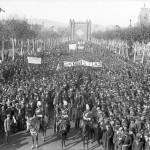
In the midst of a major political and social crisis, the CNT and UGT trade unions, supported by the PSOE and the republican parties, called a revolutionary general strike in the summer of 1917. The Russian Revolution was well underway and it raised hopes that were unrealistically optimistic.
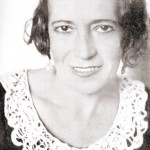
The years of the Spanish Republic were a golden age for Aurora Bertrana, not only from a literary point of view but also for her public activism.
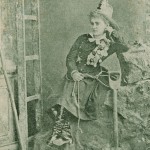
During the final third of the 19th century, feminist and anti-slavery thoughts and actions could have consequences. The composer and harpist Clotilde Cerdà i Bosch, daughter of the painter Clotilde Bosch and her husband Ildefons Cerdà, experienced it first-hand.
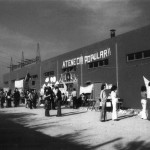
The demolition of a polluting asphalt plant in early 1977, by the very residents who were suffering its effects, lay at the heart of the Nou Barris Athenaeum, a leading player in the social mobilisation and cultural revitalisation of the city’s northern neighbourhoods after the death of the Spanish dictator, Franco.
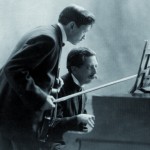
As a renowned composer of piano pieces, an acclaimed performer and an educator who created his own school, Enric Granados was deeply involved in the movements that laid the foundations for Barcelona’s solid musical culture.

An author with a variety of registers and a novelist of the viscera of classical Barcelona, Montserrat Roig wrote about and experienced deeply everything she had at hand. Her research into Catalans in Nazi camps signalled a turning point in her career. This November marks the 25th anniversary of her death.
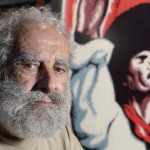
On the centenary of his birth, we remember Carles Fontserè for the posters he designed during the Spanish Civil War, but we also want to highlight his dedication to set design, photography, writing and to life itself: the many interests of an artist, a true character, who defined himself as a real nosy parker.
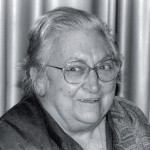
2 October will mark a quarter of a century since the death of Maria Aurèlia Capmany (1918-1991), a versatile author who for over 30 years remained at the centre of the cultural scene. She worked in all genres, although her essays on feminism and young people are of particular note.

Born in 1780 into a family of booksellers and printers, Eulàlia Ferrer first collaborated with her husband, Antoni Brusi, in the management of the Diario de Barcelona. Following her spouse’s death, she headed the newspaper known popularly by the family surname.

Centenaries should act as a stimulus to read the works of those they commemorate, and this is what we should do on the occasion of the 750th anniversary of Ramon Muntaner. But how should we read him? The fact is that we find ourselves before one of the greatest manipulators of our medieval past.
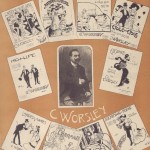
Pere Astort found success in several countries with compositions he wrote himself, inspired by popular music from the other side of the Atlantic. The so-called Boston waltzes made him famous under his pseudonym Clifton Worsley.

Albert Esteruelas Teixidó
Rosa Sensat’s greatest pedagogical work, the Escola del Bosc, saw the light on 8 May 1914. It was both an institution promoting cleanliness and a testing ground for the values of the pedagogical vanguard. Its founder wanted it to become a model for educational reform during the Spanish Republic.
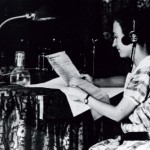
Maria Cinta Balagué was ahead of her time with a magazine-format programme especially for women. The significant contributions made as a radio presenter by this Barcelona native, who worked in the Barcelona City Council until her retirement in 1968, have only recently been reconstructed.

Doctor Manuel Ribas i Perdigó, born in 1859 in a chocolate shop in Carrer de Ferran, graduated in 1880. Four years later he took up a teaching position at the School of Medicine, where he was to become the most important colleague of the future mayor of Barcelona, Doctor Robert. He chaired the Royal Academy of Medicine from 1924 until his death, in 1927.

As mayor of Barcelona (1957–1973), Porcioles embodied Franco’s prototypic Catalan collaborator. He played a key role in an operation conceived to clean up the image of the regime; he was criticised for the construction of the sprawling urban Barcelona, but he was also praised for achievements such as the Picasso Museum and the return of the Compilation of the Catalan Civil Code.
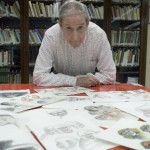
Doctor Jordi Sabater Pi’s most important contribution to science is related to the discovery of chimpanzee cultures. His studies and observations on this subject, published in the world’s most important scientific journals, have been decisive in changing the anthropocentric view of the universe.
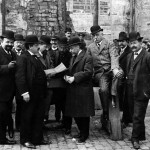
Antoni Piera i Jané was a quiet, tough and resolute man. He never talked about himself or his work, and was not one for waxing lyrical. He was what men used to be like back then, before they were defeated
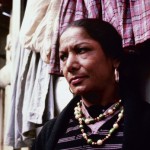
“I was born by the sea. My life and my art were born of the sea. My name is Carmen Amaya y Amaya. I am Amaya twice over, as both my father and mother were called Amaya. All the Amayas in the world are my cousins.”

FC Barcelona, or Barça, as it is known, and the way it is today, would be impossible to understand without the semi-anonymous figure of Oriol Tort Martínez (Barcelona 1929–1999), the talent spotter who discovered Guardiola, Iniesta and Xavi, and a
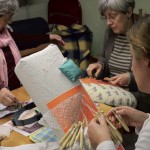
Ignàsia, daughter of the artisan Pere Claver, and wife to the shoemaker Gaspar Robira, mastered the art of lace-making and engaged in the manufacture of this fabric, which she supplemented with a clothes-making business and money-lending. The industrialist eventually set up a production network that comprised the output of women working in 13 different towns of the area around Barcelona, from Maresme to Baix Llobregat.
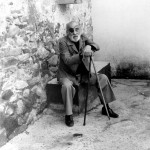
This year marks the centenary of three Barcelona-born writers who, although their lives ran in parallel, shaped by the tragic circumstances of the war, defeat and exile, are fundamentally different in their creative aspects. Barcelona does not feature prominently in
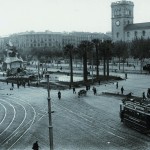
Bartomeu Robert i Yarzábal (Tampico, 1842 – Barcelona, 1902) was an unusual character. Commonly known as Doctor Robert, he turned local politics in Barcelona on its head for the seven months that he led the City Council, a period that



























